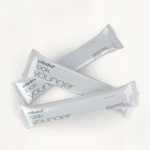What’s the best age to start taking collagen?
Published:
Categories: CollagenCollagen supplements have become increasingly popular in recent years as a way to support skin, joint, and bone health. But when is the right time to start taking collagen? In this detailed guide, we'll examine the benefits of collagen supplementation, factors that impact collagen levels over time, and advice on the optimal age to begin a collagen regimen for maximum results.
Contents:
- A Detailed Look at Collagen and Its Benefits
- Factors That Impact Collagen Depletion Over Time
- Collagen Levels Throughout Life
- When Should You Start Taking Collagen?
- Professional Expert Advice on Ideal Collagen Starting Age
- Key Considerations for When to Start Collagen
- Factors That Can Impact Collagen Absorption and Efficacy
- Maximum Absorption: Tips for Getting the Most from Collagen Supplements
- The Bottom Line: It's Never Too Early or Too Late for Collagen
- What’s the best age to start taking collagen? Conclusion

A Detailed Look at Collagen and Its Benefits
Collagen is the most abundant protein in the human body, making up 30% of total protein content. It's the main structural protein that provides strength and elasticity to connective tissues including skin, tendons, ligaments, cartilage, bone, blood vessels, and more.
As we age, collagen production begins to slow down. The breakdown occurs gradually, starting as early as our 20s. This decline in collagen is a large contributor to the physical signs of aging like fine lines, wrinkles, sagging skin, joint discomfort, and weakened bones and muscles.
Supplementing with a collagen peptide powder or capsules provides the amino acids needed to support the body's natural collagen production. The potential benefits include:
- Increased skin hydration, elasticity, and dermal collagen density for a more youthful appearance
- Reduced formation of fine lines and wrinkles
- Faster wound healing
- Relief of joint discomfort and connective tissue support for improved mobility and flexibility
- Strengthening of hair, nails, and teeth
- Support of bone mineral density
- Gut health and tissue repair of gastrointestinal lining
- Heart health by improving arterial elasticity
These wide-ranging benefits make collagen supplements highly appealing to those looking to mitigate age-related decline in connective tissues. But how soon do you need to start supplementing in order to notice results?
Factors That Impact Collagen Depletion Over Time
There are several key factors that influence collagen breakdown and depletion as we go through different life stages:
Aging
As mentioned, from our 20s onwards, we experience a steady decline of around 1% loss per year as collagen production slows down. Many people start to notice fine lines by their late 20s or early 30s as a result.
Menopause
Collagen levels drop more rapidly in women after menopause, by as much as 30% in the first 5 years. This accelerated breakdown is due to the drop in estrogen, which normally helps boost collagen production.
Poor Diet
Eating a diet low in protein can restrict the amino acids needed for natural collagen synthesis. Deficiencies in vitamin C and zinc also hamper collagen production. High sugar intake is another culprit, as advanced glycation end products (AGEs) damage existing collagen.
Sun Exposure
UV radiation from the sun degrades collagen fibers and inhibits production. This leads to premature skin aging and wrinkling.
Smoking
Toxins in cigarette smoke damage collagen and elastin while also constricting blood vessels. This depletes nutrients and oxygen needed for collagen renewal.
High Stress Levels
Stress hormones like cortisol interfere with collagen production. The inflammatory response triggered by chronic stress causes excess collagen breakdown.
Injury or Surgery
Injuries requiring immobilization, like a broken bone, can result in decreased collagen production and muscle loss. Surgeries also contribute to collagen loss.
Chronic Health Conditions
Diseases like osteoporosis, rheumatoid arthritis, and diabetes create inflammation that accelerates collagen depletion. Autoimmune disorders can also target and destroy collagen.
Collagen Levels Throughout Life
Taking the above factors into account, here is an overview of how collagen levels change from birth through old age:
- Infants & Children: Collagen production happens rapidly to support growth. Childhood is when collagen levels are at their peak.
- Teens: Collagen remains abundant through puberty. The onset of breakouts and acne may occur as skin oil production ramps up.
- 20s: Collagen slowly begins to decline but is still plentiful. Early fine lines and dryness may start to appear.
- 30s: As collagen decreases by up to 2% per year, more pronounced signs of aging occur like deeper creases and crow’s feet. Joints may also feel stiffer.
- 40s: Collagen has dropped by up to 15% from peak levels. More wrinkles, sagging skin, stiff and achey joints, and weaker nails/hair are common.
- 50s: The decrease in collagen accelerates in perimenopause. Menopause causes up to 30% further collagen decline in the first 5 years. Sun damage accumulates.
- 60s: Up to 30% of total collagen has been lost from peak production. Wrinkles are deeper, facial volume is lost, joints creak, and recovery is slower.
- 70s: Severe collagen deficit continues to show as thin, fragil skin, limited flexibility, and high risk of fracture and injury.
- 80s+: Up to half of the body's collagen may be depleted resulting in widespread effects like severe osteoporosis, arthritis, and loss of independence.
When Should You Start Taking Collagen?
Given the steady age-related breakdown of collagen that begins in our 20s, many wonder if it’s beneficial to start supplementing earlier rather than later. Here are some guidelines:
In Your 20s
- If you already notice early signs of skin aging, collagen can help mitigate lines and improve moisture
- May support joint health if you have a highly active or stressful lifestyle
- Strengthens hair, nails, and teeth
- Provides injury recovery and supports workout routines
In Your 30s
- Can treat more pronounced wrinkles and firm sagging skin
- Improves skin elasticity and hydration
- Helps strengthen joints and injury-prone areas like knees and shoulders
- May improve cellulite appearance by enhancing skin structure
- Offsets perimenopause declines
In Your 40s
- Reduces appearance of wrinkles, crow’s feet, furrows, and crepey skin
- Treats joint discomfort by improving cartilage, tendons, ligaments
- Strengthens bones, muscles, and intervertebral discs
- Helps control weight and metabolism
- Protects cardiovascular health
In Your 50s
- Restores lost facial volume and plumps skin
- Minimizes appearance of sun damage and age spots
- Prevents bone loss associated with menopause
- Alleviates stiff, painful joints and risk of injury
- Speeds up recovery from activity and exercise
- Maintains strength, coordination, balance, and mobility
Beyond Age 60
- Restores thinning skin and fragile tissues
- Reduces lines, deep wrinkles, and sagging contours
- Ongoing support for joint pain relief and flexibility
- Strengthens bones and muscles to maintain activity levels
- Aids recovery of muscle mass lost from immobility
- Support skin ulcer and wound healing
- Provides relief from arthritis symptoms
Professional Expert Advice on Ideal Collagen Starting Age
To provide additional insight into when to start taking collagen, here are some recommendations from experts:
- “I recommend starting collagen supplements as early as age 25-30 to maintain collagen production and offset the typical decline.” – Dr. Yara Harb, dermatologist
- “Age 30 is a good time to begin collagen therapy if you have risk factors like sun damage, want to be proactive against aging, or have an active lifestyle causing joint stress.” – Dr. Shino Bay Aguilera, cosmetic dermatologist
- “If you’re experiencing mild collagen depletion in your late 30s such as fine lines and stiffness, adding a supplement can help reverse and prevent further breakdown.” – Jill waibel, MD board certified dermatologist
- “Starting collagen supplements in your 40s and 50s can make a big difference in erasing noticeable aging effects from wrinkles to bone loss.” – Dr. Joel Loeb, board certified plastic surgeon
- “I recommend collagen to women going through menopause for preserving skin elasticity and bone density.” – Dr. Helen Gu, reproductive endocrinologist
- “Seniors should take collagen for its broad benefits in strengthening skin, bones, joints, muscles, and tendons which decline severely as we age.” – Dr. Jeremy Appleton, licensed dietician and nutritionist
- “Athletes and highly active people can benefit from taking collagen in their 20s and 30s for stronger joints, faster recovery, and injury prevention.” – Rick Richey, certified personal trainer
Key Considerations for When to Start Collagen
While early prevention in your 20s and 30s is ideal, it’s clear that taking collagen at any age can offer improvements. It’s especially impactful from your 40s onwards when collagen loss starts accelerating. Keep these tips in mind:
- Consult your doctor if you have specific health concerns like osteoporosis or arthritis
- Pick a high quality collagen from a reputable brand for maximum results
- Be patient. It can take 2-4 months to notice benefits from supplementation
- Take collagen consistently and make it part of your daily routine for continued effects
- Add in other collagen-boosting habits like eating protein-rich foods, staying hydrated, exercising, and managing stress
Factors That Can Impact Collagen Absorption and Efficacy
To gain maximum benefits from the collagen you take, it’s important to be aware of lifestyle factors that may reduce absorption and supplement effectiveness:
Medications: Certain medications like diuretics, steroids, and NSAIDs can interfere with collagen absorption.
Smoking: Smoking impedes collagen utilization and triggers more rapid breakdown. Avoid for better efficacy.
Excess Alcohol: Heavy alcohol intake can inhibit collagen synthesis and cause inflammation. Moderation is key.
Inadequate Nutrition: Getting insufficient protein, vitamins C and A, zinc, and copper restricts collagen production.
Too Much Sugar: Sugar causes glycation, forming rogue bonds that damage collagen fibers. Limit added and refined sugars.
Sun Exposure: Unprotected UV exposure degrades existing collagen. Always wear SPF.
Inactivity: Lack of exercise causes loss of collagen-producing muscle mass. Stay active.
High Stress: Increased cortisol production interferes with collagen rebuilding. Manage stress through yoga, meditation, etc.
Insufficient Sleep: Lack of REM and deep sleep inhibits collagen production at night. Get 7-9 hours per night.
Dehydration: Without ample water intake, collagen production lags. Drink plenty of water daily.
Age: The older you get, the less efficiently collagen is produced and absorbed. Taking collagen helps counteract deficits.
Maximum Absorption: Tips for Getting the Most from Collagen Supplements
To boost collagen absorption and results, here are some recommendations:
- Take collagen on an empty stomach or at least 30 minutes before eating
- Combine collagen protein powder into a smoothie with vitamin C for easier breakdown
- Drink plenty of water after taking collagen to support delivery and utilization
- Apply a collagen cream after showering while skin and pores are open
- Take collagen consistently at the same time each day for steady availability
- Pair oral collagen with bone broths or foods high in collagen-building nutrients
- Avoid extreme heat when cooking collagen to prevent protein denaturing
- Consider hydrolyzed or liquid collagen for higher bioavailability
- Manage stress and get sufficient sleep to support natural collagen production
- Stay active with weight-bearing exercise to boost collagen synthesis
The Bottom Line: It's Never Too Early or Too Late for Collagen
While starting collagen in your 20s and 30s is recommended for prevention, even those in their 70s, 80s or beyond can benefit from reduced signs of aging, stronger bones and joints, faster wound healing, and improved vitality.
The key is choosing a high quality supplement, being consistent with your regimen, making collagen-boosting lifestyle choices, managing factors that degrade collagen, and allowing ample time to see benefits. Don't expect overnight results - stick with it for 2 to 4 months for full improvements.
If you're on the fence about trying collagen, consult with your physician and determine if it aligns with your health goals. With few risks and abundant potential benefits, collagen supplementation is an impactful way to defend against time's effects on our connective tissues.
What’s the best age to start taking collagen? Conclusion
In conclusion, while starting collagen in your 20s or 30s is ideal for preventing age-related decline down the road, beginning supplementation at any life stage can provide advantages.
The nutrients in collagen help counteract depletion that occurs from intrinsic aging, menopause, poor lifestyle habits, chronic diseases, and environmental assault. Those in middle age and beyond may find the most dramatic effects when it comes to reversing visible signs of aging and deteriorating bone and joint health.
Consult with your doctor if needed, choose quality supplements, and remain diligent in your daily regimen. With a little patience, the improvements to skin, joints, bones, muscles, and tendons will materialize. It's never too late to support your body's collagen needs!
Resources used to write this article
Harb, Y. (2021). When should you start taking collagen? https://www.byrdie.com/when-should-you-start-taking-collagen-4768719
Aguilera, S.B. (2019). When should you start taking collagen? https://drsbaily.com/when-should-you-start-taking-collagen/
Waibel, J. (2021). When should I start taking collagen supplements? https://www.skinneymedspa.com/blog/when-should-i-start-taking-collagen-supplements/
Loeb, J. (2021). When is the best time to start taking collagen supplements? https://www.joelkingloebmd.com/blog/when-is-the-best-time-to-start-taking-collagen-supplements/
Gu, H. (2022). Collagen for menopause: Benefits and recommendations. https://drhelengu.com/collagen-for-menopause/
Appleton, J. (2021). Collagen supplementation in the elderly. https://www.nutritionist-resource.org.uk/memberarticles/collagen-supplementation-in-the-elderly
Richey, R. (2022). Why athletes should consider collagen supplements. https://www.nutribuddy.com/blogs/news/why-athletes-should-consider-collagen-supplements
Poillot, A. et al. (2021). *A review on collagen cross‐linking during aging: Effect on fracture toughness and mechanical properties. * https://onlinelibrary.wiley.com/doi/10.1002/jbm4.10470
Sign up to our newsletter and enjoy 10% off one order
YOU MIGHT ALSO LIKE
Post related products
-

Look Younger CIBD0073


















